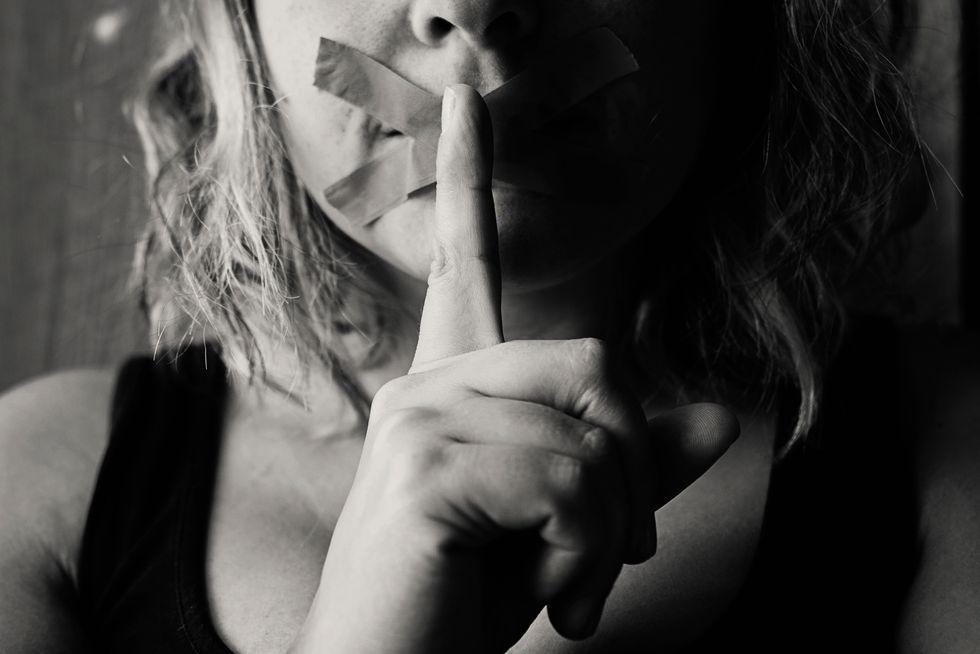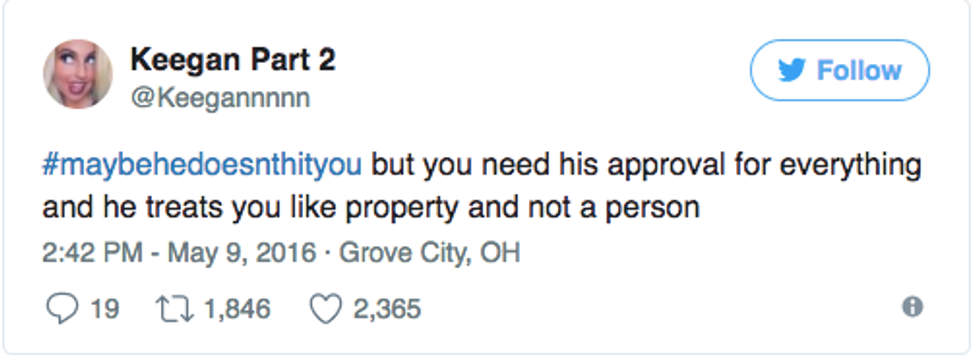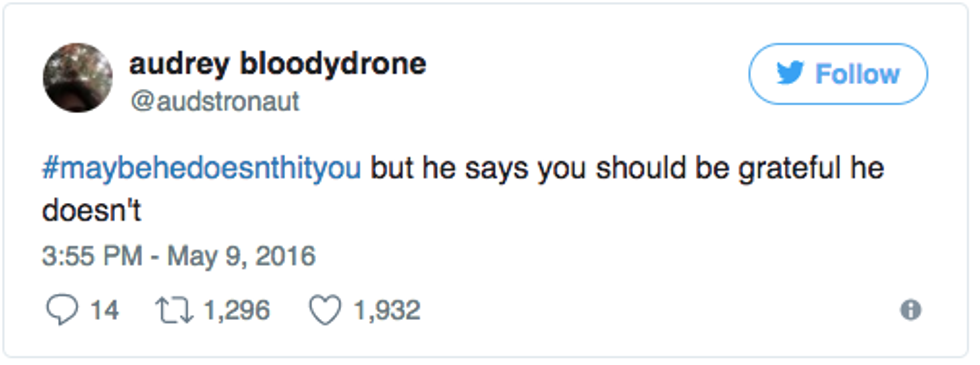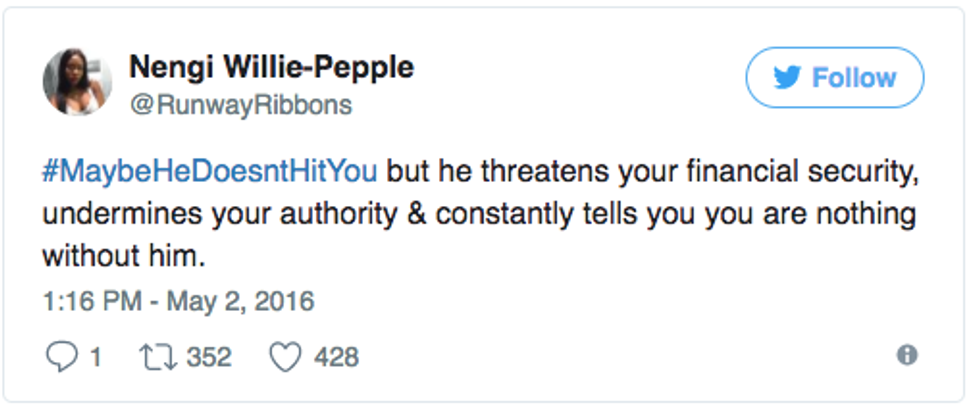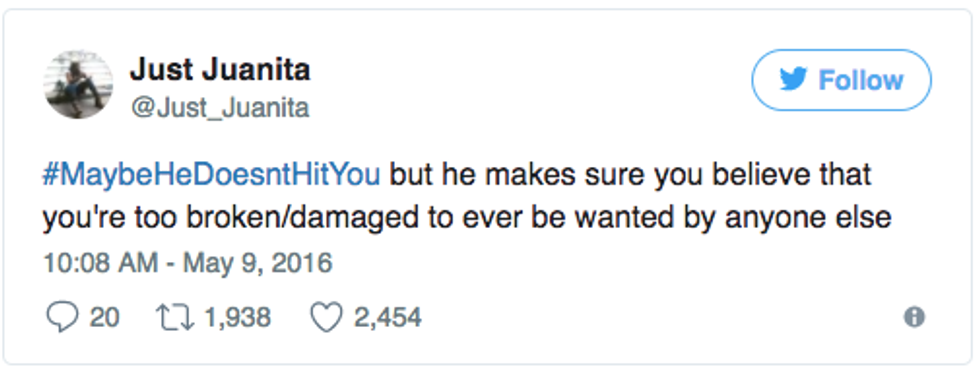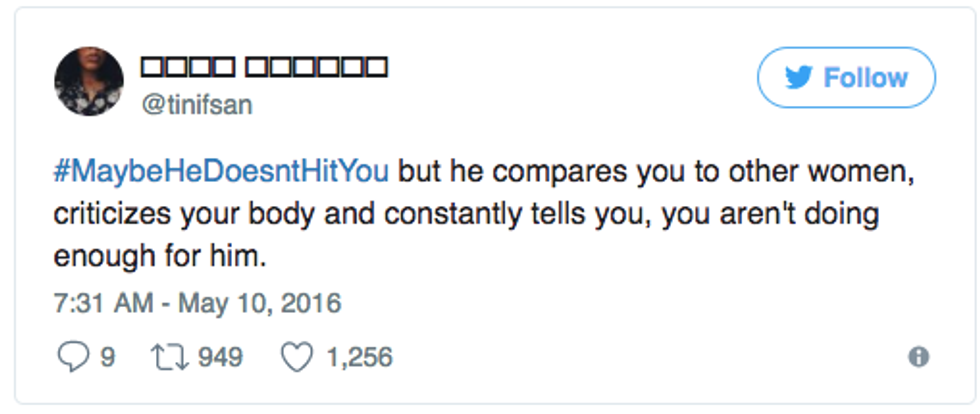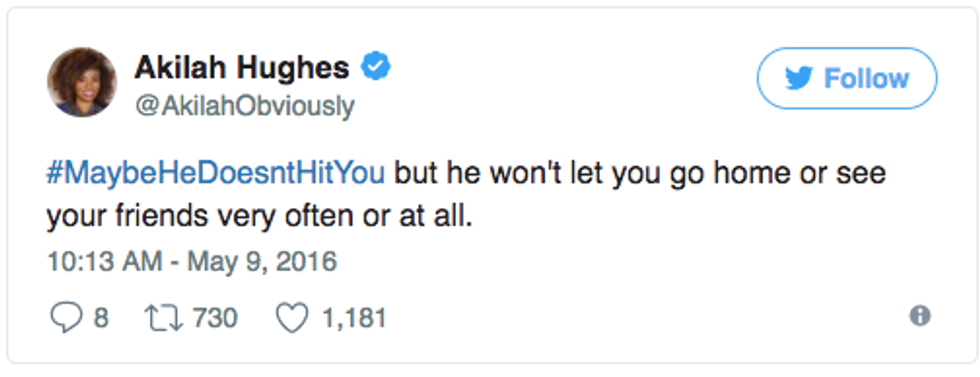The month of October is widely associated with Halloween...ghosts, goblins, vampires, zombies, clowns...all the usual scary stuff. Not only is October known for its festivities, but it is also known as Domestic Violence Awareness month.
And let's be honest. Domestic violence is the true horror here.
Around this time last year, I had written a previous article discussing domestic violence statistics, the effect it has on survivors, and how brave and hopeful survivors are.
This year I want to take a slightly more different approach when discussing this horrendous issue.
In most cases, obvious signs of domestic violence is the physical abuse: the hitting, slapping, pushing around, and so on. If there are black and purple bruises, then there is absolutely no doubt that someone is in an abusive relationship.
But what about the relationships where signs of abuse aren't so easy to point out? What if he doesn't hit you but you're still being abused? Is that even possible?
The answer is yes, it is definitely possible. And it happens more than you might realize.
When it comes to domestic violence, it actually comes in many forms including physical, mental, emotional, and verbal.
While all of these types of abuses are terrible and shouldn't be taken lightly, I want to specially focus on the non-physical abuses since they are the most difficult to address.
Some women believe that just because their significant other doesn't actually hit them, it's not considered domestic violence, but that's where they're wrong.
In 2016, there was a major Twitter trend with the hashtag #MaybeHeDoesntHitYou. This hashtag allowed many women to share their personal stories of abusive and horrible relationships even though there was no physical harm.
The viral trend was geared towards females in heterosexual relationships, but I believe that it definitely applies in any other type of relationship too. Furthermore, it also applies to men as well as women.
Anyone can go through domestic violence, regardless of their sexual orientation and gender.
I've listed a few examples of these tweets below.
What you see in these tweets are examples of "coercive control," a term coined by Evan Stark, who is a forensic social worker and professor at Rutgers University.
As a matter of fact, the United Kingdom used Stark's research to pass a law that allows criminals who commit "coercive or controlling" abuse to be punished for up to five years behind bars. (Nice job, UK!)
“Being subjected to repeated humiliation, intimidation or subordination can be as harmful as physical abuse, with many victims stating that trauma from psychological abuse had a more lasting impact than physical abuse,” explained Alison Saunders, who was director of public prosecutions.
Stark's work came down to a few main points that I want to emphasize:
1.) It's about intimidation. Abusers typically use threats to scare their significant other, whether it is threatening to hurt their partner, their partner's family or friends, and even their partner's property.
2.) Abusers may also control and take over their partner's simple day-to-day activities. This includes micromanaging and taking away their partner's everyday necessities to assert dominance.
3.) According to Stark, there are many cases where abusers try to remove and isolate their partners from any support systems that they have (i.e. family, friends, work). This is because they want the victim to feel vulnerable and alone. As a result, they become dependent and reliant on their abuser.
4.) The final point--just because he might not hit you yet doesn't mean that he won't later. Oftentimes, emotional abuse is a very slippery slope that can lead right into physical violence. Stark claimed, "The significance of this abuse is frequency, not its severity, and its cumulative effect."
These are a few of the many red flags of intimate partner violence (IPV), and it is crucial to pay attention to the warning signs in your relationship and the relationships around you.
If you find yourself questioning whether a partner's action is considered abusive or not, remember that love should never hurt.
----------------------
For more information or help, you can call The National Domestic Violence at 1-800-799-7233 or check out their website.

